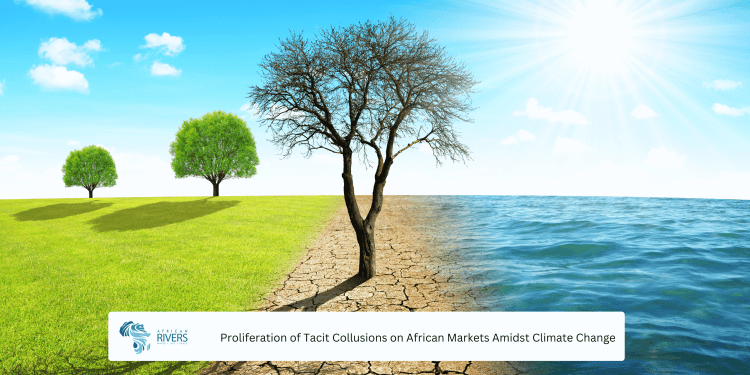Part 1
24.06.2024
In the last 20 years, most African economies have been experiencing steady growth but exponential growth has been inhibited by the proliferation of tacit collusion practices which need to be stopped immediately using prohibition of abuse of dominant position or market power provisions by the established relevant national antitrust authorities on the continent, said Dr. Kelvin Kamayoyo, Scholar, Competition Law Expert and former Head of Competition and Consumer Protection Tribunal Secretariat in Zambia. The current market competition in several industries on the continent of Africa is manifesting a proliferation of “tacit collusions” amidst unrelenting climate change thus, indicating somewhat weak enforcement of the competition laws predominantly first introduced over 30 years ago in many countries.
Undeniably, it is nolonger a secret that climate change is real and impacting almost every part of our social and economic morphology thereby compelling every actor to seek for varied remedies or safety nets inorder to minimise the adverse effects. Along the way and as is the case vividly most industries in Africa are characterised by oligopolistic market structures where two or three firms are controlling the behavior of the entire industry, a situation which pose unhealthy competition and remains undesirable as it rarely yields consumer benefits and often supports tacit collusion practices.
Proliferation of tacit collusion behaviour on the African markets is becoming rampant owing to the fact that it is not prohibited “per se” in most antitrust laws, globally. What most firms on the continent are using to justify their likely tacit collusion conduct is citing the adverse effects caused by climate change which in itself is exogenous or capable force majeure occurrence. However, climate change should never be used to justify any abuse of dominant position or as an excuse by any firm’s unilateral or collective increase of relevant product market price because marginal production costs are largely endogenous and ideally unique from each firm. Similarly when cost of production among firms is asymmetric in a particular industry, one would expect firms to price their products differently, if the market is enjoying health competition and provides differentiated
goods or services.
This is not necessarily the prevailing situation in several industries in Africa due to the proliferation of tacit collusion practices and the insufficient argument anchored on the alleged common unforeseen adverse impacts of climate change on the business welfare. While climate change is now a common phenomenon globally, it remains in dispute that the extent of it’s impact would make the various firms’ experience the same marginal production cost and total output thereby warranting a homogeneous price adjustment on the relevant product market. Certainly homogeneous price can only happen if firms are talking and frequently interacting with each other and thus, they are tacitly colluding to the detriment of the competition process of the concerned industry.
Please look out for Parts 2 & 3 in the next editions and for comments contact the author on email: [email protected]








































